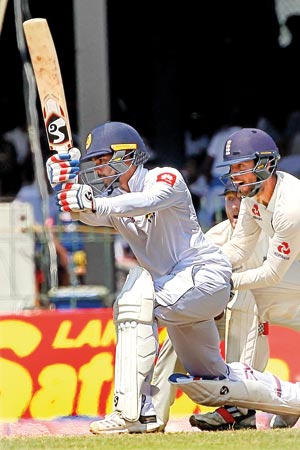New Selectors likely to name three skippers for each format

Dananjaya de Silva for Tests
Dhananjaya de Silva, Kusal Mendis and Wanindu Hasaranga are set to become the Test, ODI and T20 captains as Sri Lanka seeks to revamp its national team amid a current decline.
Sri Lanka only managed to win two out of nine games at the World Cup, prompting a reevaluation of a system that had failed to yield desired outcomes.
Dimuth Karunaratne expressed his wish to step down from the Test leadership, but he continued in that role at the insistence of the former cricket selectors.
However, it is understood that the new selection committee, led by Upul Tharanga, is contemplating handing the responsibility of the longer format over to the team’s vice-captain Dananjaya de Silva.
Karunaratne assumed leadership in 2019 during a challenging period and guided Sri Lanka fairly well. Under his captaincy, they achieved a notable victory against South Africa in a two-match Test series, a feat unprecedented under any previous Sri Lankan skipper.
Karunaratne himself previously nominated de Silva as his successor in red-ball cricket. The 32-year-old de Silva has featured in 51 Test matches, accumulating 3,301 runs with 10 centuries and 13 half-centuries.
Mendis, who led Sri Lanka in seven ODIs during the World Cup when regular skipper Dasun Shanaka was injured, is likely to take over in ODI cricket. A highly skilled cricketer, he has amassed 3,509 runs in 121 ODIs.
Shanaka has led Sri Laka during the last 18-months with a mixed bag of results. Under him, Sri Lanka won the Asia Cup in 2022 and reached the finals in 2023 in addition to several bilateral series win at home. However, with his own form taking a huge beating, his axing was on the cards for a while.
 Hasaranga, who led B-Love Kandy to the Lanka Premier League title, is the leading candidate for the T20 leadership due to his strong leadership qualities demonstrated during the domestic league. Sri Lanka’s top white-ball bowler, Hasaranga, is a remarkable all-rounder who has participated in 58 T20 internationals for Sri Lanka, as well as in various global leagues, including the IPL.
Hasaranga, who led B-Love Kandy to the Lanka Premier League title, is the leading candidate for the T20 leadership due to his strong leadership qualities demonstrated during the domestic league. Sri Lanka’s top white-ball bowler, Hasaranga, is a remarkable all-rounder who has participated in 58 T20 internationals for Sri Lanka, as well as in various global leagues, including the IPL.
Having different captains for each format can be advantageous as it allows for specialisation in specific strategies and tactics. It also provides for greater flexibility in team selection, as different players may be better suited to different formats.
However, there are drawbacks to this approach. Having a single captain for all formats can provide consistency and stability within the team, fostering familiarity with the captain’s leadership style and approach. It can also contribute to building team unity and cohesion as the players work towards a common goal under the guidance of a single leader.


